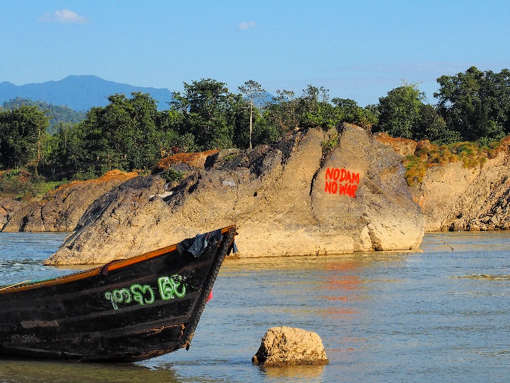
People want to make wars simpler than they really are. There's something comforting in being able to point to a single cause and say this is the reason for all the suffering.
While I was reporting on the civil war in Kachin State, Myanmar, which has continued for over half a century, people told me many different reasons for why the fighting would not end. The rebels said the fighting was the fault of the Burmese government for repressing the Kachin. The Burmese government blamed the rebels for endangering the unity of the nation. Kachin civil rights organizations explained the brutality of the Burmese military fueled new generations of freedom fighters. International aid workers whispered that the Burmese military wanted to keep control of Kachin State to harvest its timber and jade. But the most common answer I heard, especially from average person on the street, was that the war continued because of plans to build the Myitsone dam, a huge hydroelectric project which threatens to flood thousands of acres of Kachin land to create power for China. When I traveled to the half-built dam, I found graffitied on a boulder: "No Dam, No War."
I found during my reporting the true origins of the conflict were far more complicated than those four words suggested. But I also learned that sometimes people need to reduce the complex factors driving a conflict to a single simple cause in order to live through the fighting.









